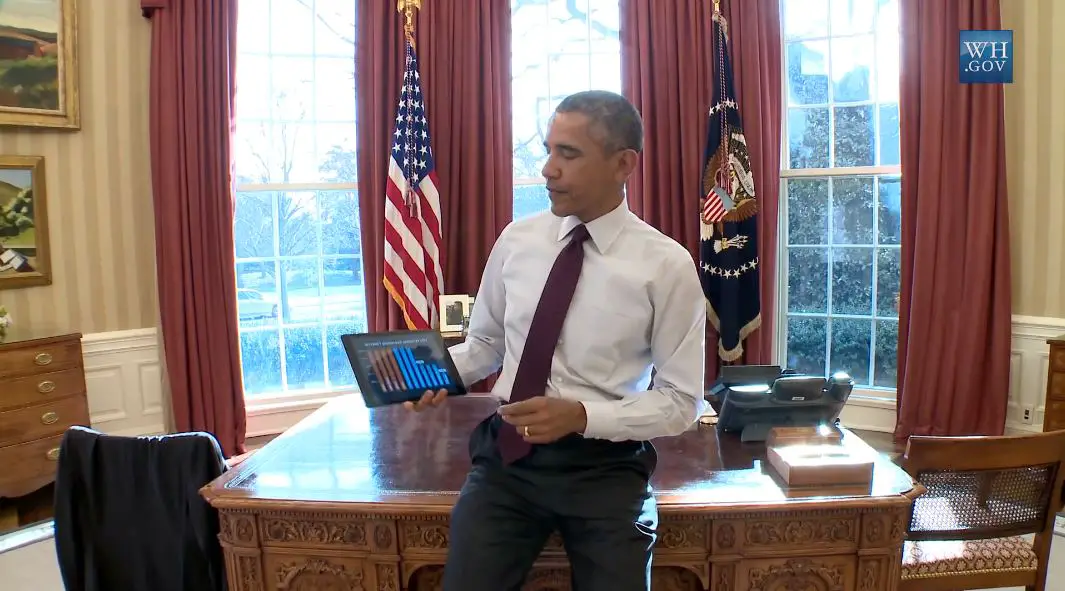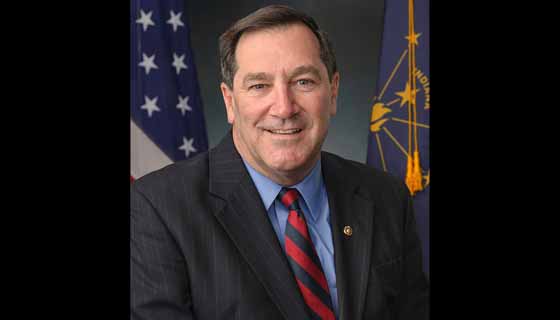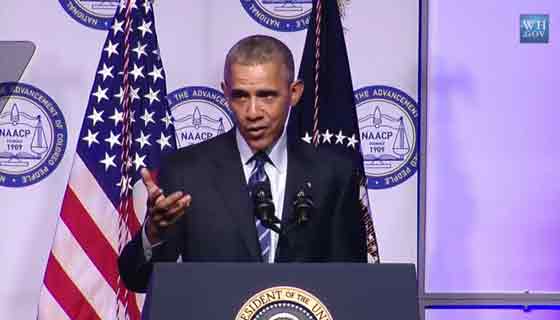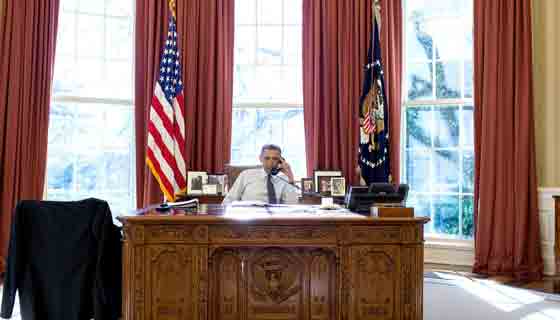The United States lags behind much of the rest of the highly developed world in terms of Internet speeds.
Estimates vary but a study from Akamai — one of the world’s largest cloud content delivery companies — found that the US ranked only #12 in average Internet speeds and #17 in peak Internet speeds.
Even as Americans’ Internet connections lag behind other countries, such as South Korea, consumers still pay more. One report found that American consumers pay 10 times as much as their counterparts in Seoul and receive Internet speeds that are half as fast.
In an announcement previewed on Tuesday night, the White House unveiled a new set of proposals to increase broadband Internet speeds and availability in the United States, as well as dramatically lower the cost of high speed Internet connections through increased competition.
President Obama emphasized the importance of fast and reliable Internet connections for a 21st century economy and for a quality education. The president highlighted Cedar Falls, Iowa; Kansas City, Missouri; and Chattanooga, Tennessee, whose Internet speeds are among the best in the nation with speeds roughly 100 times faster than the average US connection.
“The good news is there are some steps that we can take through executive actions that allow us to make sure that every community can do what Cedar Falls is doing,” the president said in a YouTube video.
Cedar Falls, a sleepy Iowa town with a population of only 40,000, has faster Internet than large American cities, including Silicon Valley titans like San Francisco.
Even more impressive is a municipal broadband network in Chattanooga, Tennessee that brought 1 gigabit per second Internet connections across a 600 square mile network. Chattanooga, once known for its trains, is now being called the “Gig City” after its gigabit speeds which dwarf the average American speed of just over 10 Mbps. Chattanooga’s fiber optic network manages speeds that are 100 times faster.
The benefits have been impressive. Chattanooga’s high Internet speeds attracted a number of businesses. The city went from having virtually no venture capital to over $50 million worth and in recent years has attracted $4 billion in foreign direction investment.
Instead of embracing the success, Tennessee’s legislature restricted expansion of the network beyond its current size. Telecom lobbyists have lobbied vigorously on the state level to prevent municipalities from creating networks that would insert competition into the marketplace and increase speeds for residents. There are currently 20 states that have restrictions or bans on municipal broadband. Rather than opening access to broadband Internet to more communities, several additional states are considering following suit at the behest of telecom companies.
The president would like to change that.
He is penning a letter urging the Federal Communications Commission (FCC) to “address barriers inhibiting local communities from responding to the broadband needs of their citizens.”
The FCC is already considering preventing states from banning municipal broadband networks. In a blog post on the FCC’s website, Chairman Tom Wheeler (who is also battling telecoms on the issue of net neutrality), laid out the rationale:
I believe that it is in the best interests of consumers and competition that the FCC exercises its power to preempt state laws that ban or restrict competition from community broadband. Given the opportunity, we will do so.
The facts speak for themselves: competition works – when it is allowed to. Throughout the country where we have seen competitive broadband providers come in to a market, prices have gone down and broadband speeds have gone up. No wonder incumbent broadband providers want to legislate rather than innovate.
The president is praising the municipal networks, as well as networks led by companies such as Google, whose Fiber service was deployed in Kansas City.
“The reasons that they can compete with these other world cities is because citizens got together and made the investment to bring competition in and make sure that Internet speeds were just as fast there as anywhere else,” the president said of Cedar Falls.
The president says that his administration is creating a new initiative that will promote the deployment of high speed broadband. Called BroadbandUSA, the program will provide assistance to communities looking to build broadband networks.
The Commerce Department will “publish guides and tools that provide communities with proven solutions to address problems in broadband infrastructure planning, financing, construction, and operations across many types of business models.”
The White House says that they will provide grants and loan opportunities through a revamped Department of Agriculture program to provide high-speed broadband service to unserved and under-served rural communities.
“Every community will be able to make the investments they need to speed up broadband, bring in more competition, give consumers more choice and — as a consequence — hopefully they’re going to be in a better position to attract businesses, make sure students have the web at their fingertips, make sure that all of the uses of the Internet that are available are right there in their communities,” the president says.
————










